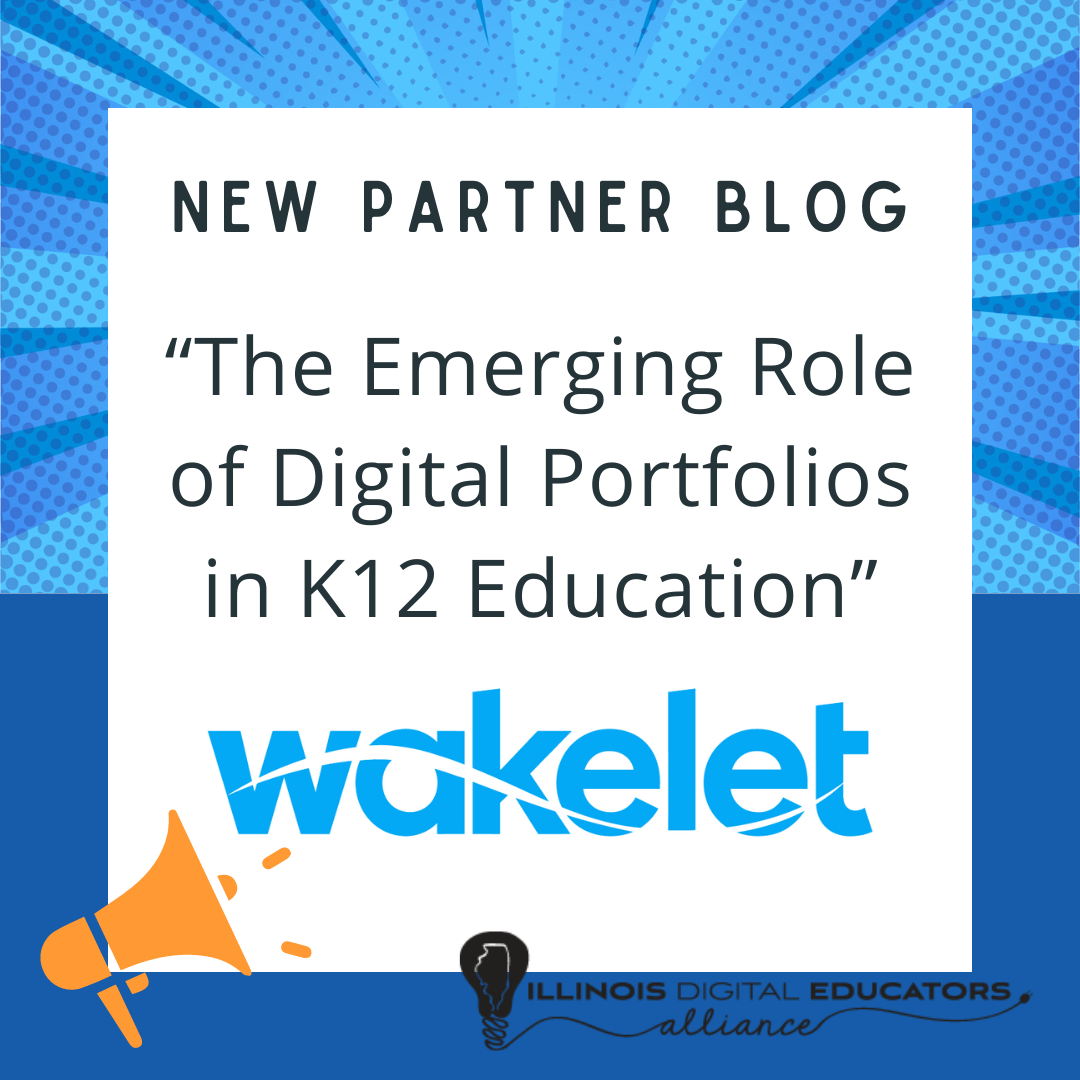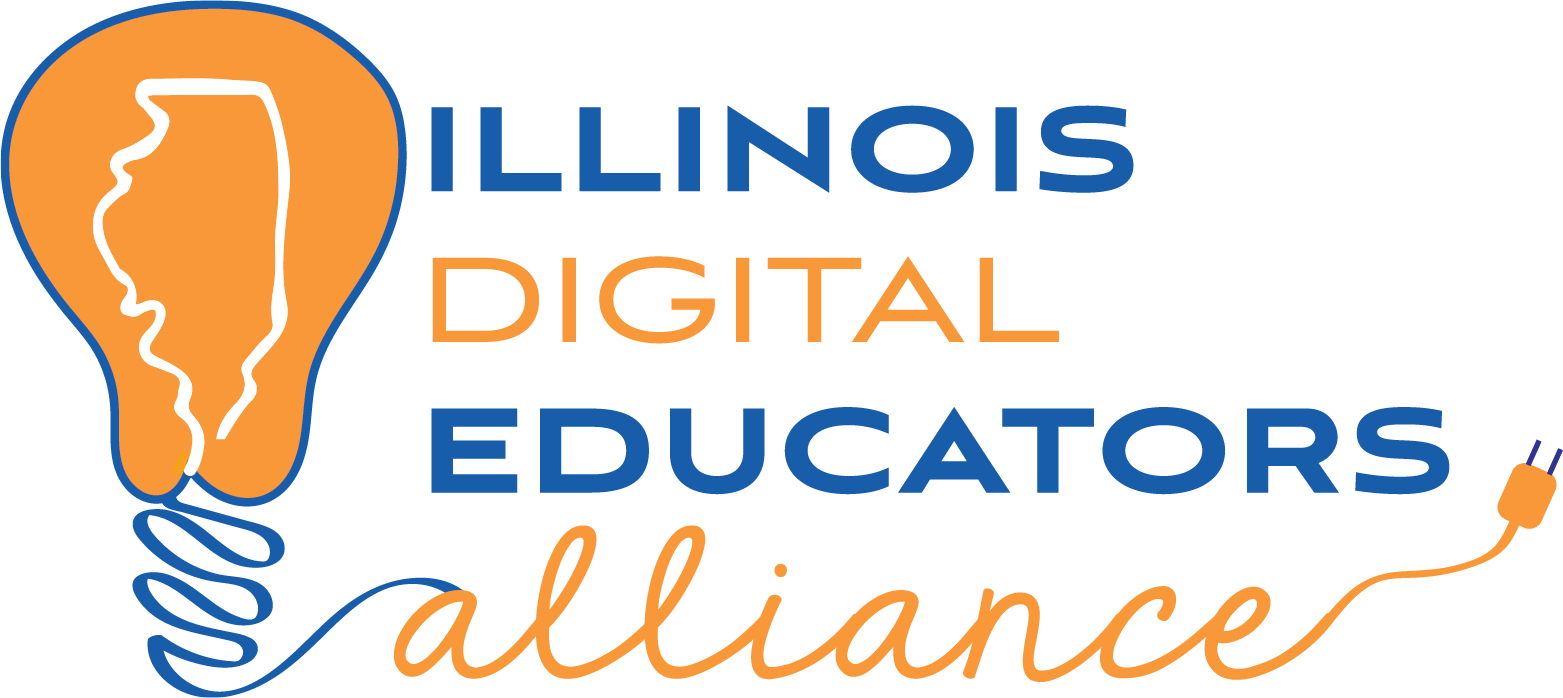Contact Info
2735 Hassert Blvd. Ste. 135 PMB304
Naperville, IL 60564
The IDEA Blog
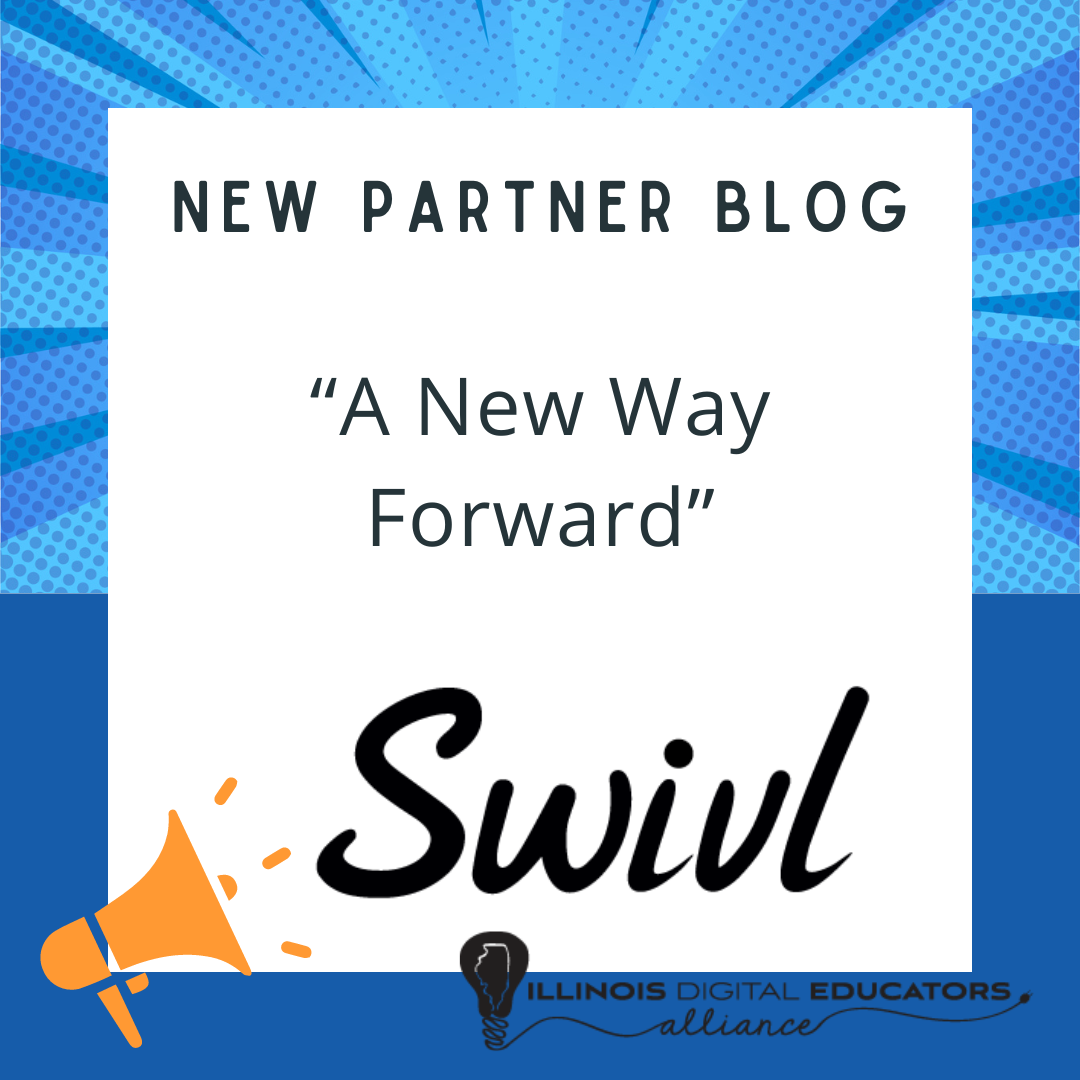
By Brian Lamb, CEO and Co-Founder of Swivl
•
24 Apr, 2024
Students need social and emotional skills for school and daily life. Especially today, where technology can manipulate our emotions and erode our social skills unlike ever before. None of this should be controversial. Swivl thinks a new way forward is possible by making reflection a part of every learning activity, for every student, every day. We can explain this best by first explaining the reflective technology we’ve built to enable it.
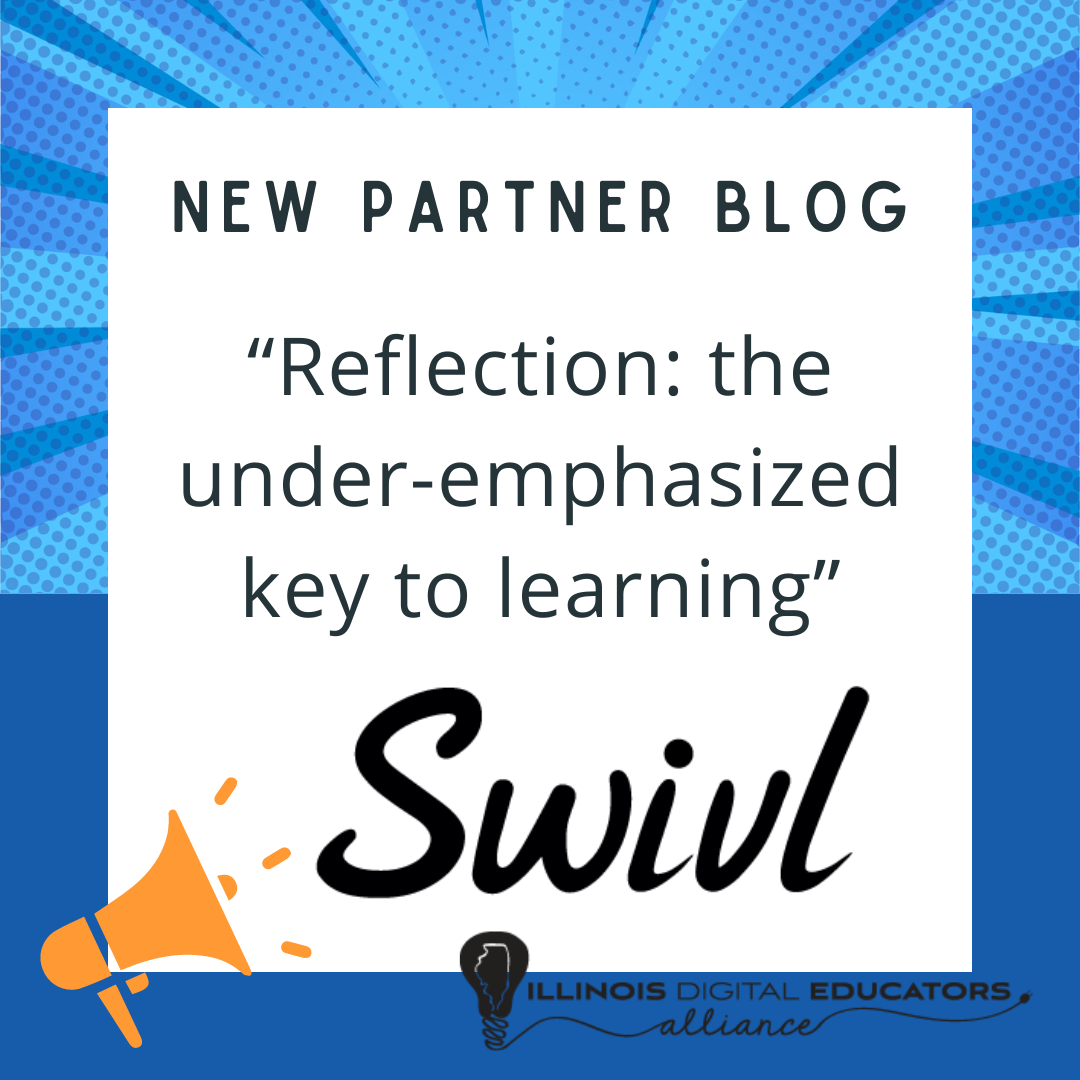
By Brian Lamb with Swivl
•
03 Apr, 2024
For centuries we’ve known there are two requirements for learning: engagement and reflection. Modern students experience a massive imbalance between these two requirements. Students’ lives are filled with more engagement than they can handle, and arguably less reflection than they need. The reflection that is part of their school experience is often too limited. Swivl believes a new path forward that addresses these challenges is possible by seeing reflection for what it is: a necessary tool for learning.

By Greg McDonough
•
28 Mar, 2024
President John F. Kennedy once said “Leadership and learning are indispensable to one another.” IDEA's Students for Innovation: Advocacy Day exemplifies this quote unlike any other event I have been a part of as an educator. This annual event invites students and their teachers from across Illinois to showcase how they use technology in the classroom at the State Capitol building in Springfield. It’s an incredible opportunity for students to directly speak to their state representatives about the impact technology has had on them, and advocate for more technology in Illinois schools.
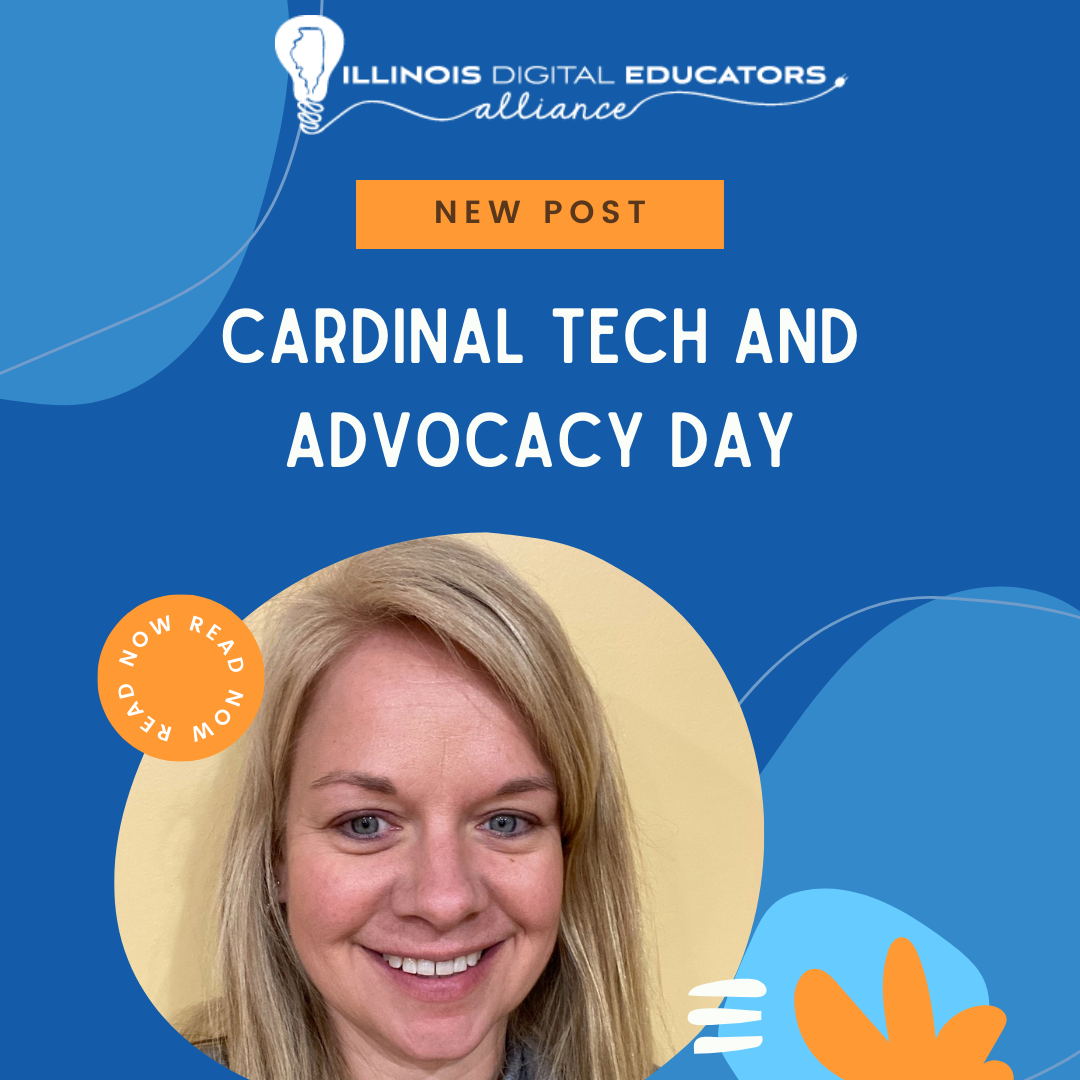
By Ami Young
•
21 Mar, 2024
This previously published blog post tells about the impact and importance of Students for Innovation: Advocacy Day from a teacher’s perspective. If you’ve never been involved, Ami Young’s blog gives you an idea of what Advocacy Day is and how her students have been able to amplify their voices through Advocacy Day.

By John Closen
•
07 Mar, 2024
Students for Innovation: Advocacy Day is an Illinois Digital Educators Alliance event that has been around for 30+ years. If you’ve never participated or attended, you may not know what it is or why it is so important and impactful. This post offers a former superintendent’s perspective on how Advocacy Day is amplifying student voices in a big way and why you should be involved. Author John Closen was a superintendent at the time he attended his first Advocacy Day, and he has been a staunch advocate for the day ever since!
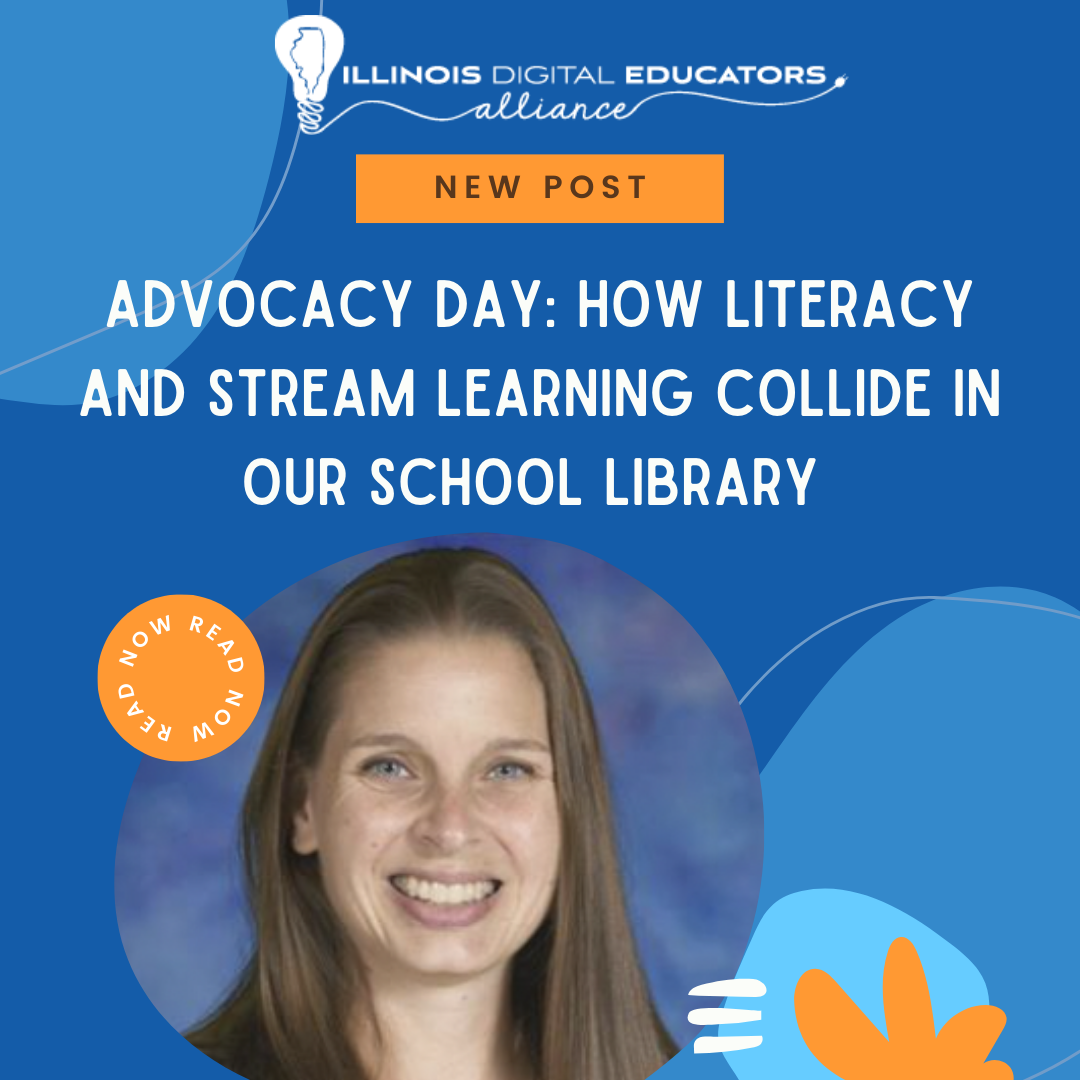
By Kristy Gilbert
•
29 Feb, 2024
There is a huge misconception as to what school libraries are all about and many people, including lawmakers, are failing to see the power that school libraries have to redefine learning and create learners who thrive on collaboration, creativity, and critical thinking. This is exactly why we need events like IDEA's Advocacy Day. We need a forum that will allow our students a voice to bring awareness to the amazing things happening in our classrooms and in our libraries, especially in times where budgets are being cut and school libraries are disappearing.
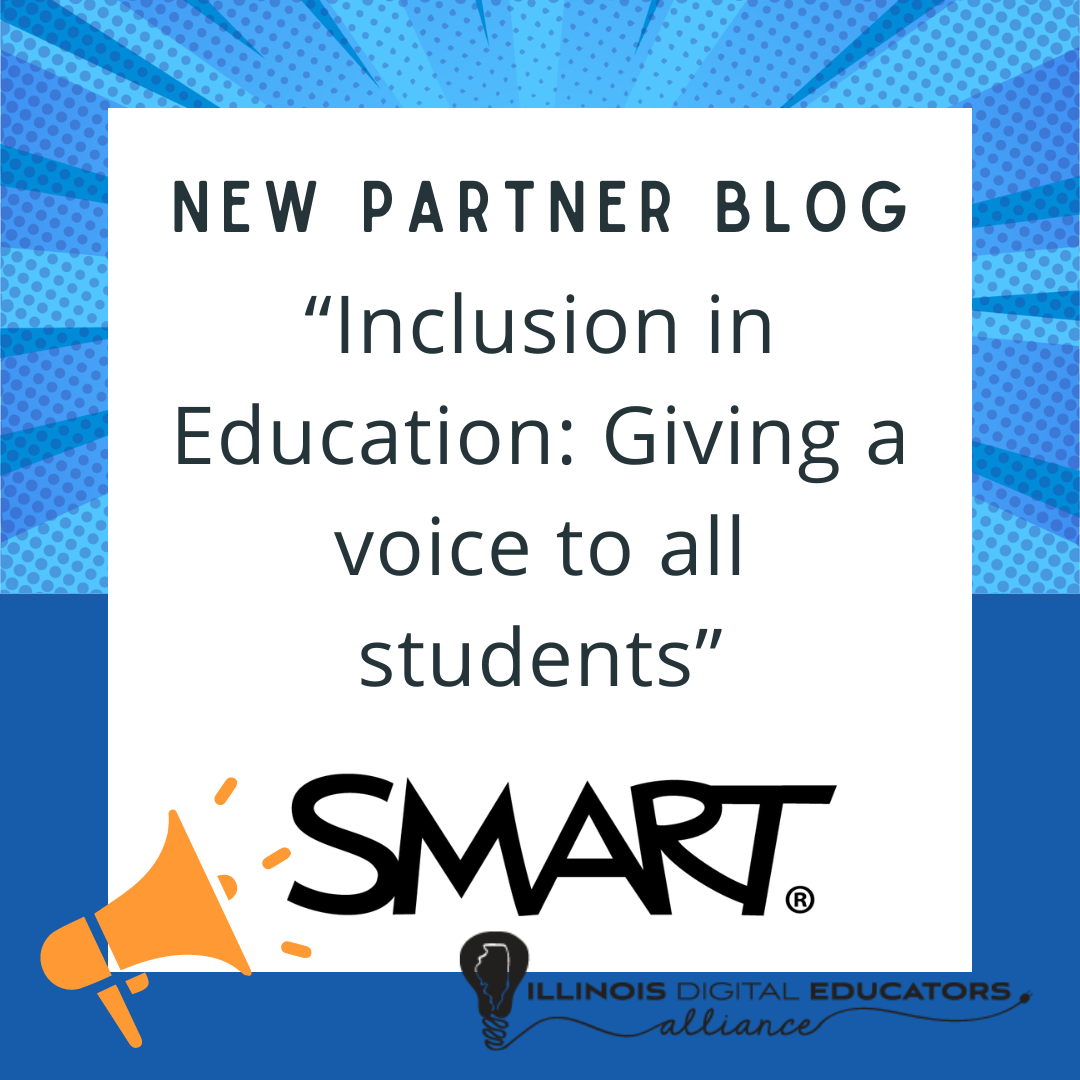
By Anna Tansey, SMART Technologies
•
15 Feb, 2024
Inclusion is one of the most important ways we can level the playing field and deliver engaging learning experiences for all. Strategies that foster inclusion in education are essential to amplify the voices of every student, regardless of their mode of communication. In this blog, I offer strategies and considerations that all educators can take into their classroom to provide inclusive learning environments, regardless of their students abilities or disabilities.

By Abeer Ramadan-Shinnawi, MEd
•
14 Feb, 2024
In her famous TED Talk, Nigerian author Chimamanda Ngozi Adichie warns of the danger of a single story. She explains how growing up, she only read books about British and American characters, and it wasn't until she read African literature that she saw people who looked like her and had similar experiences. This single story of the world can lead to stereotypes, misunderstandings, and a limited understanding of the complexities of different cultures and histories. Similarly, the dominant narrative in history has been written by those in power, often leaving out the perspectives and experiences of marginalized communities. This has resulted in a distorted and incomplete understanding of our collective past. By reclaiming history and teaching missing narratives, we can break free from the single story and gain a more nuanced and accurate understanding of our past. There is a saying in the history sphere of teaching that teaching the non-dominant history is called “teaching hard history.” I believe that this is not “hard” but “necessary” history. History is often described as a collection of stories from the past that helps us understand how our world has evolved. However, traditional history education has often overlooked, marginalized or even erased certain narratives, leaving behind stories that are crucial for a comprehensive understanding of our past. The importance of teaching missing narratives in history provides a foundation on building a more inclusive society. History education should not be about memorizing facts but about developing critical thinking skills. When we teach missing narratives, students are encouraged to question the dominant narratives they have been taught. They learn to analyze sources, consider multiple perspectives, and form their own opinions—a skill that is invaluable in today's world. For many students, they do not see themselves in the history curriculum that is being taught, therefore, aligning curriculum that reflects student lived experiences provides a culturally responsive lens. Culturally responsive teaching is an approach that recognizes the importance of incorporating students' cultural backgrounds and experiences into the curriculum. By teaching missing narratives, we can make history more relevant and relatable to students' lives. This can help students see the connections between the past and the present, and understand how historical events have shaped the world we live in today. Teaching missing narratives in history allows us to broaden our perspectives and gain a more holistic view of human experiences. When we only focus on dominant narratives, we miss out on the stories of communities, individuals, and events that have shaped our world. By including these missing narratives, we not only honor the voices that have been silenced but also enrich our understanding of history. Many missing narratives in history are a result of historical injustices and systemic biases. By teaching these narratives, we acknowledge past wrongs and work towards correcting them. It's a step towards justice and reconciliation with the past, helping to ensure that such injustices are not repeated. History is not just about the past; it also shapes the present and future by inspiring change. Students who learn about the struggles and achievements of those who have been marginalized are more likely to become advocates for justice and equality. History is not just a collection of facts and dates; it is a reflection of the human experience. When we teach missing narratives, we encourage empathy and compassion. Students can better relate to the struggles, triumphs, and challenges faced by people from diverse backgrounds. Students can also learn how groups overcame injustice that led to the creation of laws or policies that impact their lives today. This empathy can translate into a more compassionate and understanding society. Our society is becoming increasingly diverse, and it is essential that our history education reflects this diversity. Teaching missing narratives ensures that all students can see themselves represented in history, fostering a sense of belonging and pride in one's heritage. Students can also find connections between their own communities and those of other communities and how we build on the knowledge and strengths of each other to create the larger harmonious collective of society. Incorporating missing narratives into history education is not only about rewriting history but about enriching it. It's about acknowledging the stories that have been ignored, silenced, or forgotten and giving them the place they deserve. By doing so, we create a more inclusive, empathetic, and informed society—one that can learn from its past to build a better future.

By Jed Dearybury
•
07 Feb, 2024
Anytime I try something new in teaching I get nervous. Whether it was back when I was teaching first grade, or to my present day college courses and leading workshops for conferences around the world, I am always scared things will flop and I will look like a fraud. I will never forget the time my lesson on animal adaptations went awry when the blubber bags filled with lard busted and turned my classroom into a grease pit. It was a chaotic disaster that ended with 3 students having to call home for a change of clothes. I cried that afternoon. I felt shame. My perfectly crafted lesson was a mess. Literally. The next few weeks after that lesson, I played it very safe until I got the itch, and courage, to try something new and exciting again. In order to give myself a boost of confidence that I needed for an adventurous lesson, I created this stop sign for my door. As you can see it says, “experimental teaching in progress!” There was something about this sign that gave me a bravery boost. It reminded me that so much of what we do in the classroom is experimentation. Experimenting with new ideas, new ways to deliver them, new ways to assess them, etc. Every year, every day, every moment of teaching is one experiment after another as we seek to connect the learning to learners who are changing every second of the day. Their moods are up, down, back, forth, and their brains, like ours, are often distracted by so many real world issues that can make teaching very difficult. Hanging this sign on my door reminded me of that fact and allowed me to feel much more freedom in the work.
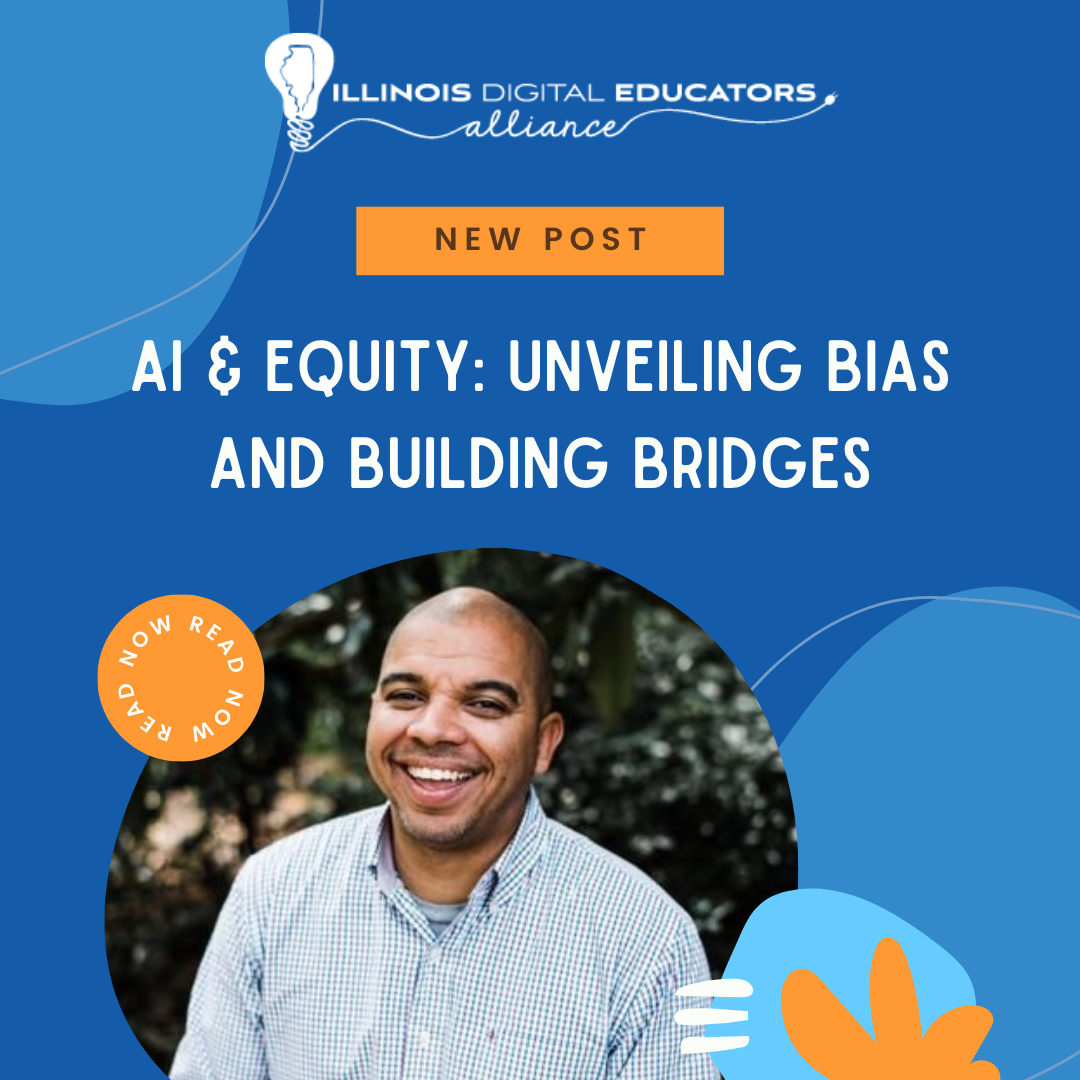
By Dee Lanier
•
01 Feb, 2024
We've been talking about AI in education, its potential, and the pitfalls to avoid. But one crucial conversation often gets swept under the rug: bias. We hear whispers of "identifying bias" or "ethical AI," but rarely do we get concrete tools to tackle these complex issues.
Contact us
2735 Hassert Blvd. Ste. 135 PMB304
Naperville, IL 60564
©2022 | All Rights Reserved | Illinois Digital Educators Alliance
Website powered by Neon One


